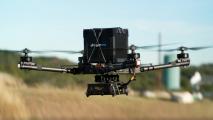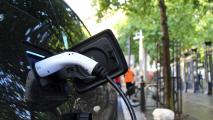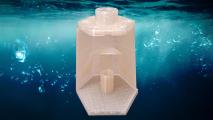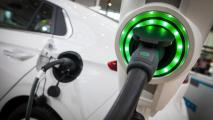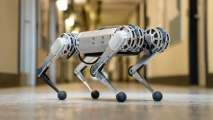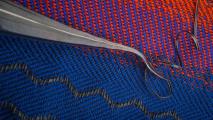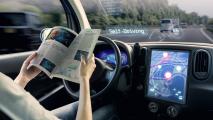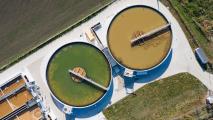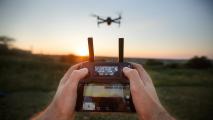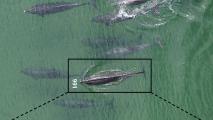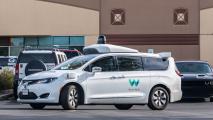
Materials
Though we live in a digital age, material science has shaped history—and it’s far from over. From quantum computers to fusion reactors, breakthroughs in materials will drive the next technological frontier.
More
Medical drones to transport blood being rushed to Ukraine
Medical drones are being rushed to Ukraine to help residents get the medical supplies they need in the midst of the war with Russia.
Can my electric car power my house? Not yet for most drivers, but vehicle-to-home charging is coming
Want to help protect the environment, save money on gasoline, or try out the latest technology? Try powering your house with your car.
This bird-like drone can perch on branches, catch objects
Inspired by birds’ perching abilities, researchers developed a drone with a bird-like structure that can land on a wide array of objects.
High schoolers create $1 filter to remove lead in water
Maryland high schoolers have created a filter that removes lead in water. It costs just $1 and alerts users when it needs to be replaced.
Paris plans to be completely cyclable by 2026
France is investing a total of 250 million euros ($290 million) to make the city of Paris entirely bikeable.
Starbucks is creating an EV “charger highway,” from Seattle to Denver
Starbucks is aiming to capitalize on the demand for electric vehicle infrastructure by installing chargers at up to 15 locations in the U.S.
MIT’s “Mini Cheetah” teaches itself to run 8.7 mph, breaking speed record
The four-legged robots learn how to move through experience — both in the real world and in simulations.
Elon Musk’s Starlink internet helps destroy Russian tanks
An elite Ukrainian drone unit is using SpaceX’s Starlink internet service to coordinate attacks on high-priority Russian military targets.
Swiss scientists are making jet fuel from sunlight and air
The fuel’s reliance on sunlight makes desert areas prime land for production sites, leaving valuable agricultural land available for food.
A fabric that “hears” your heart’s sounds
An MIT team has designed an “acoustic fabric” to convert sound vibrations into electrical signals.
What is 3G and why is it being shut down? An electrical engineer explains
3G networks are built using completely different equipment and algorithms than its newer replacements.
Volkswagen reveals release date for electric Microbus
Volkswagen will begin selling its all-electric ID. Buzz — a modern take on the iconic Microbus — in the U.S. in 2024.
Steering wheels now optional for driverless cars in US
Driverless cars no longer need to have manual controls, according to the National Highway Traffic Safety Administration’s safety standards.
Drones and AI recover a meteorite for the first time
Australian researchers have trained an AI to locate fallen space rocks using footage from autonomous drone surveys.
Oculus exec bets $10,000 we’ll have fully autonomous cars by 2030
An Oculus exec has publicly bet $10,000 that vehicles with Level 5 autonomy will arrive on city streets by 2030.
Win-win: we can make fertilizer by purifying wastewater
Stanford engineers have developed a cost-effective way to convert a toxic byproduct of a wastewater filtration process into useful chemicals.
Ukrainian citizens are using personal drones to spy on Russian troops
Ukraine has called on local drone owners to help the military conduct reconnaissance missions in the wake of Russia’s invasion.
Pregnant dolphins identified by drones for the first time
Using drone photography, University of Aberdeen researchers have been able to identify pregnant dolphins for the first time.
Self-driving cars could transform the world in unexpected ways
Self-driving cars could impact the future of economics, equity, privacy, and city planning.
How close are we to curing blindness?
New approaches to curing blindness are heralding a future in which fewer people have to live life completely in the dark.
Get inspired with the most innovative stories shaping the world around us.



